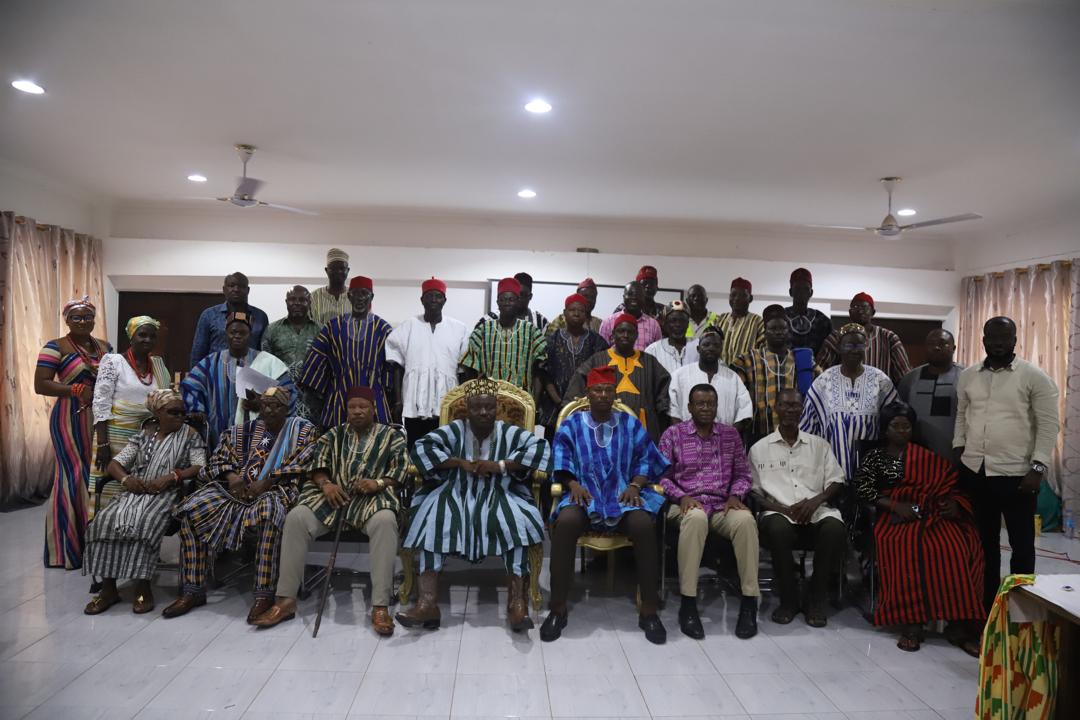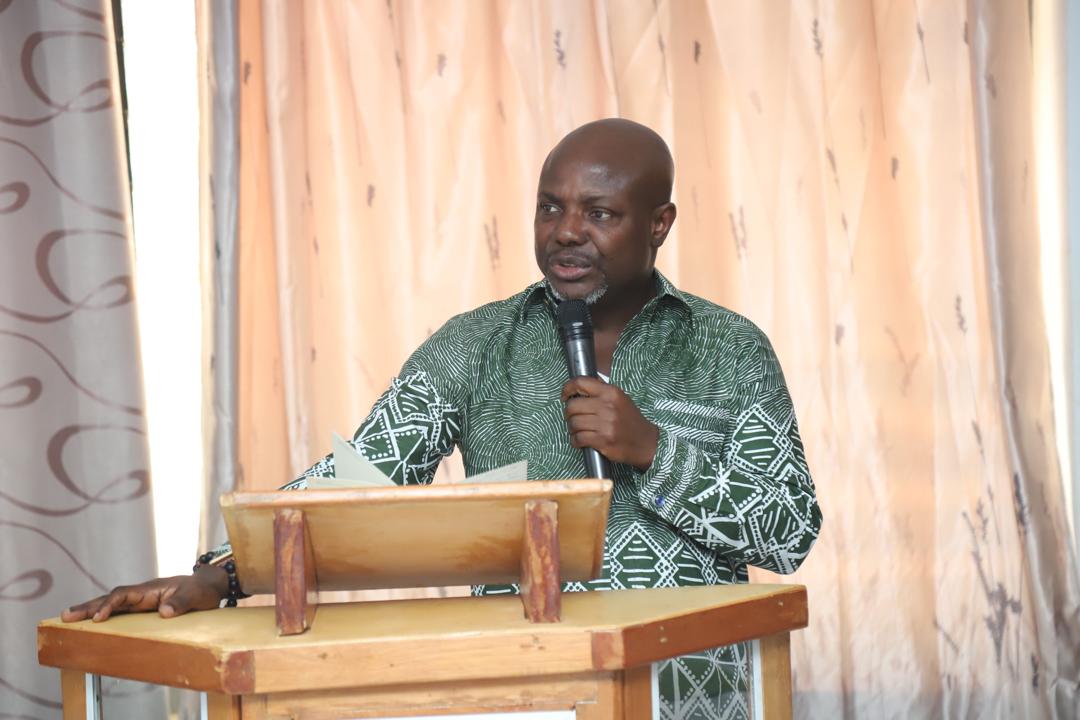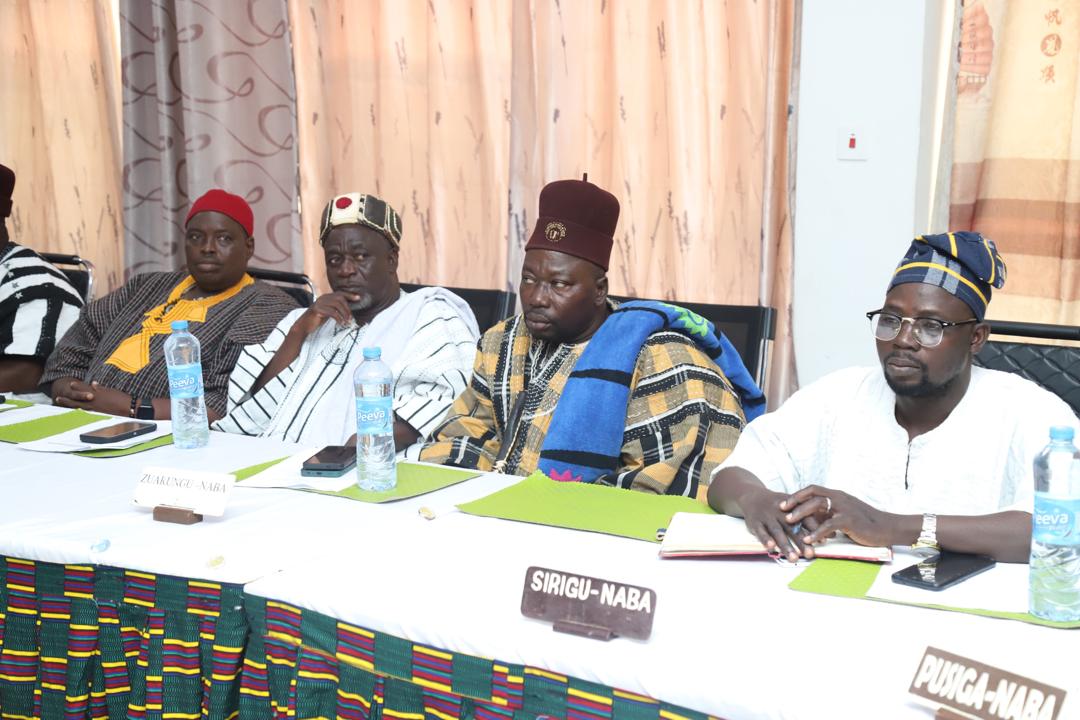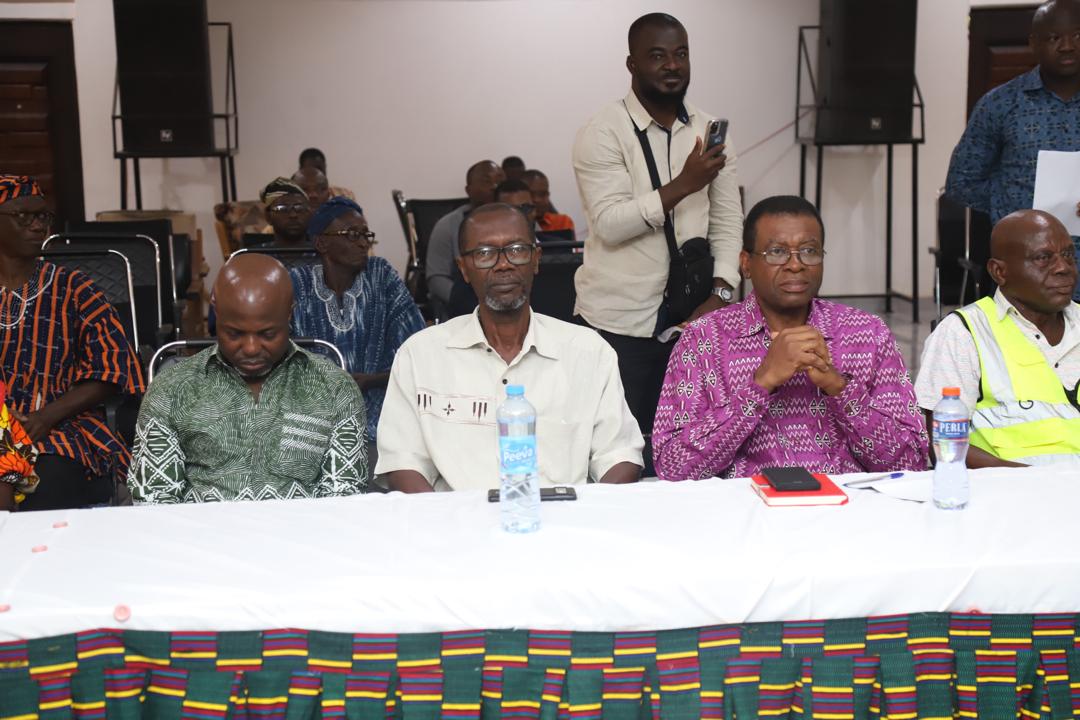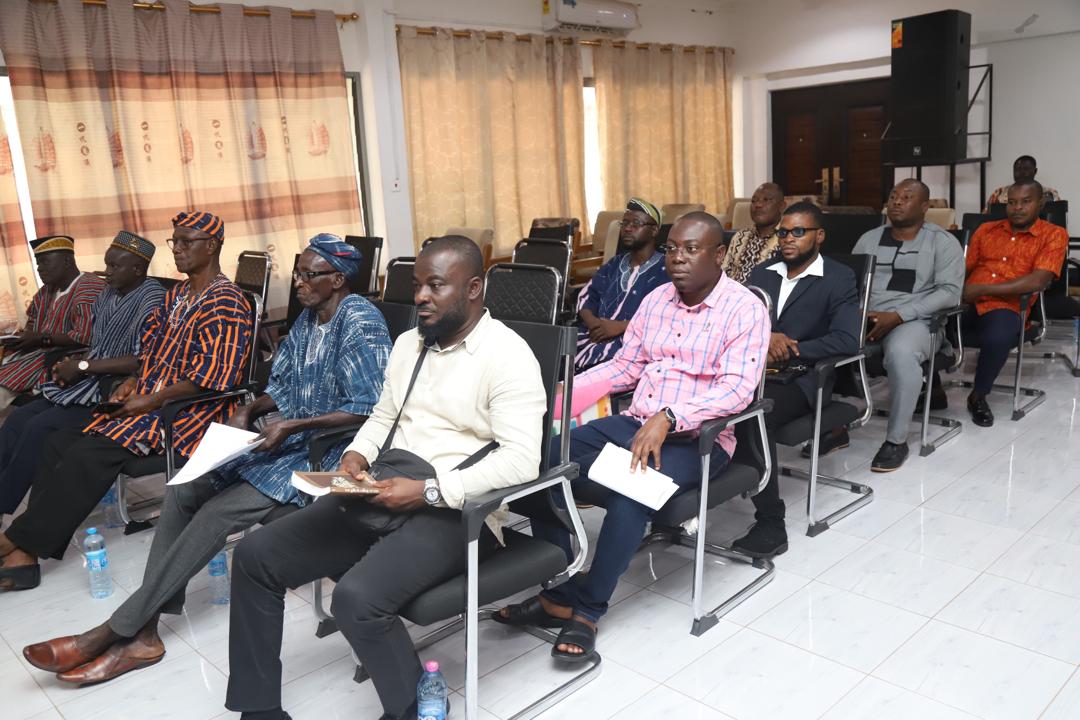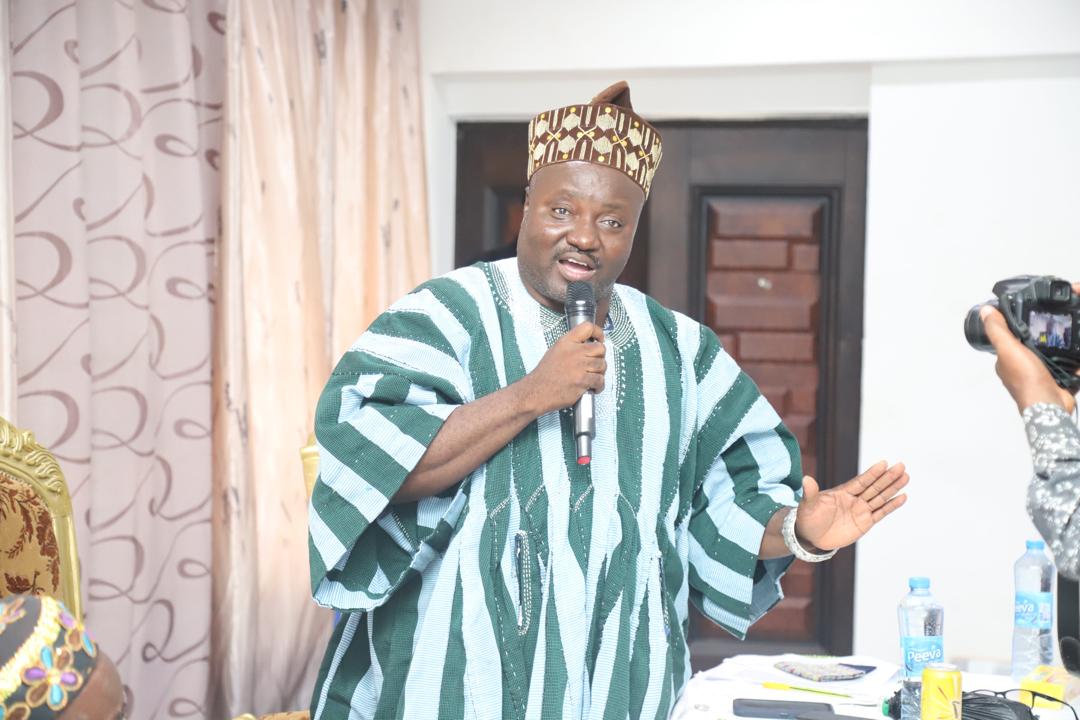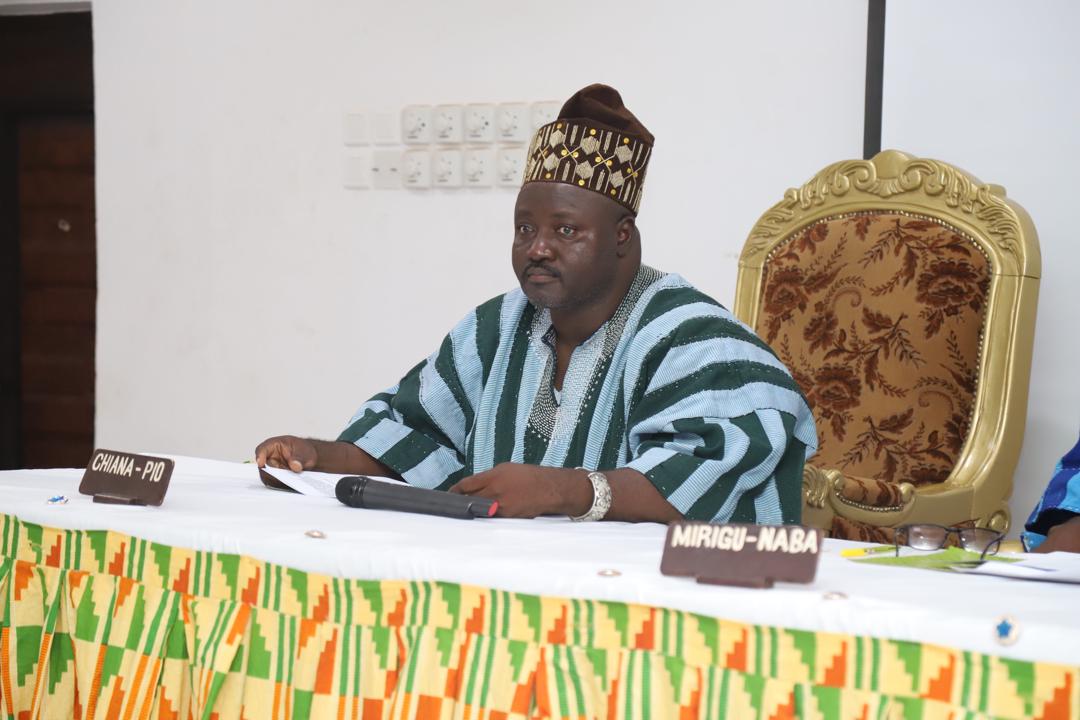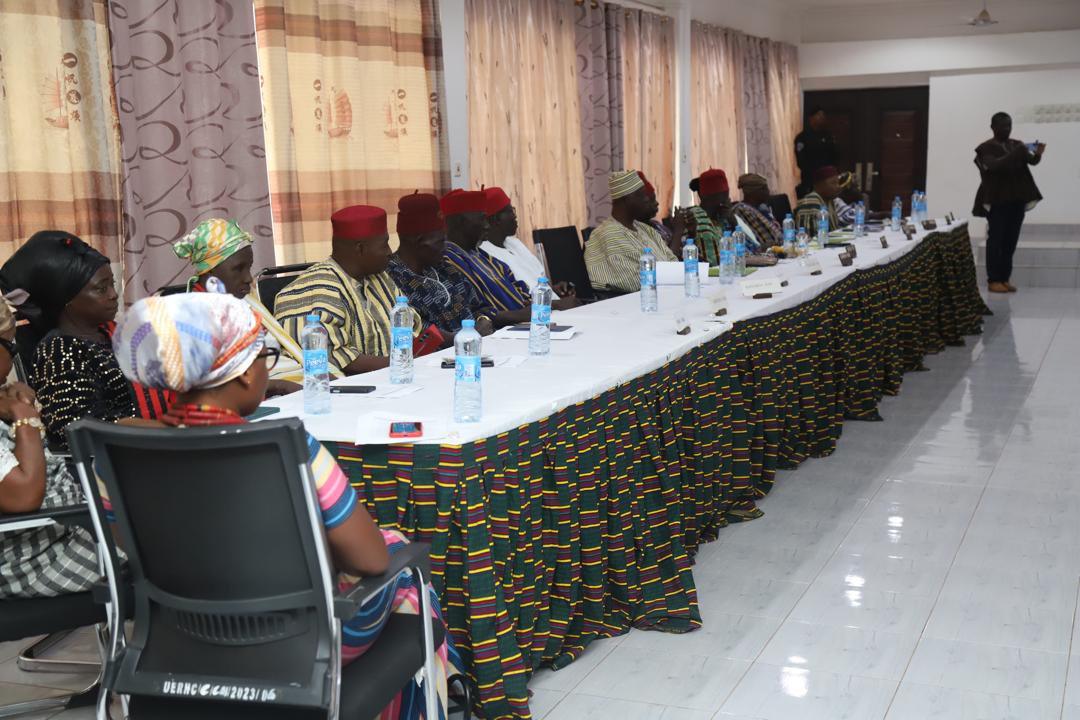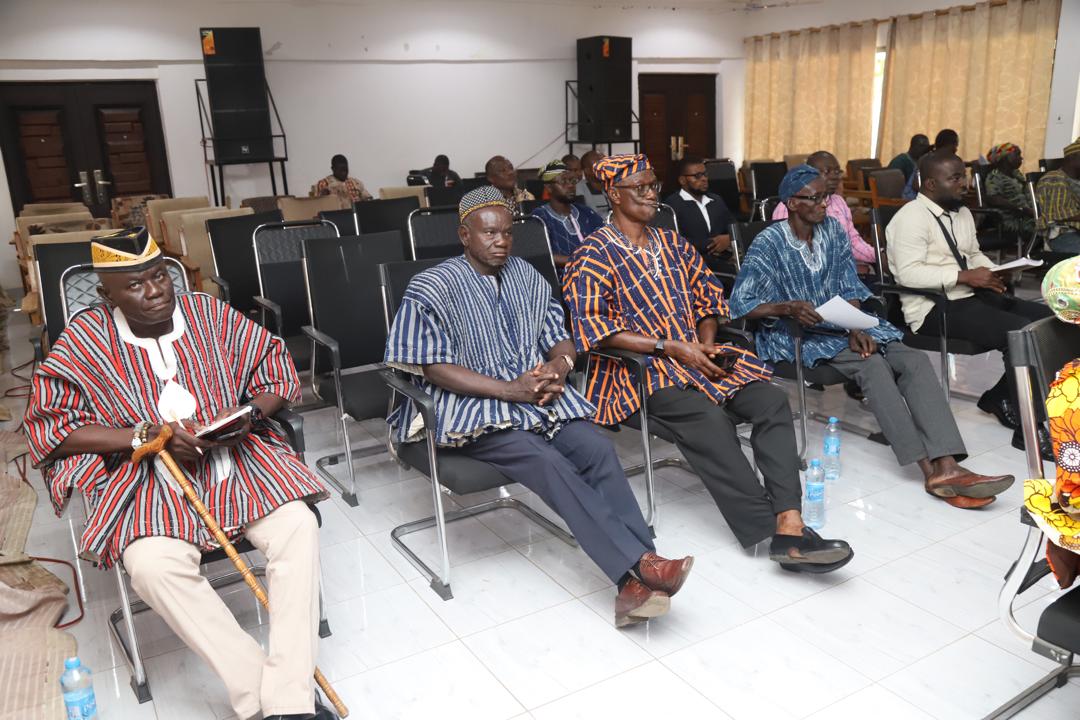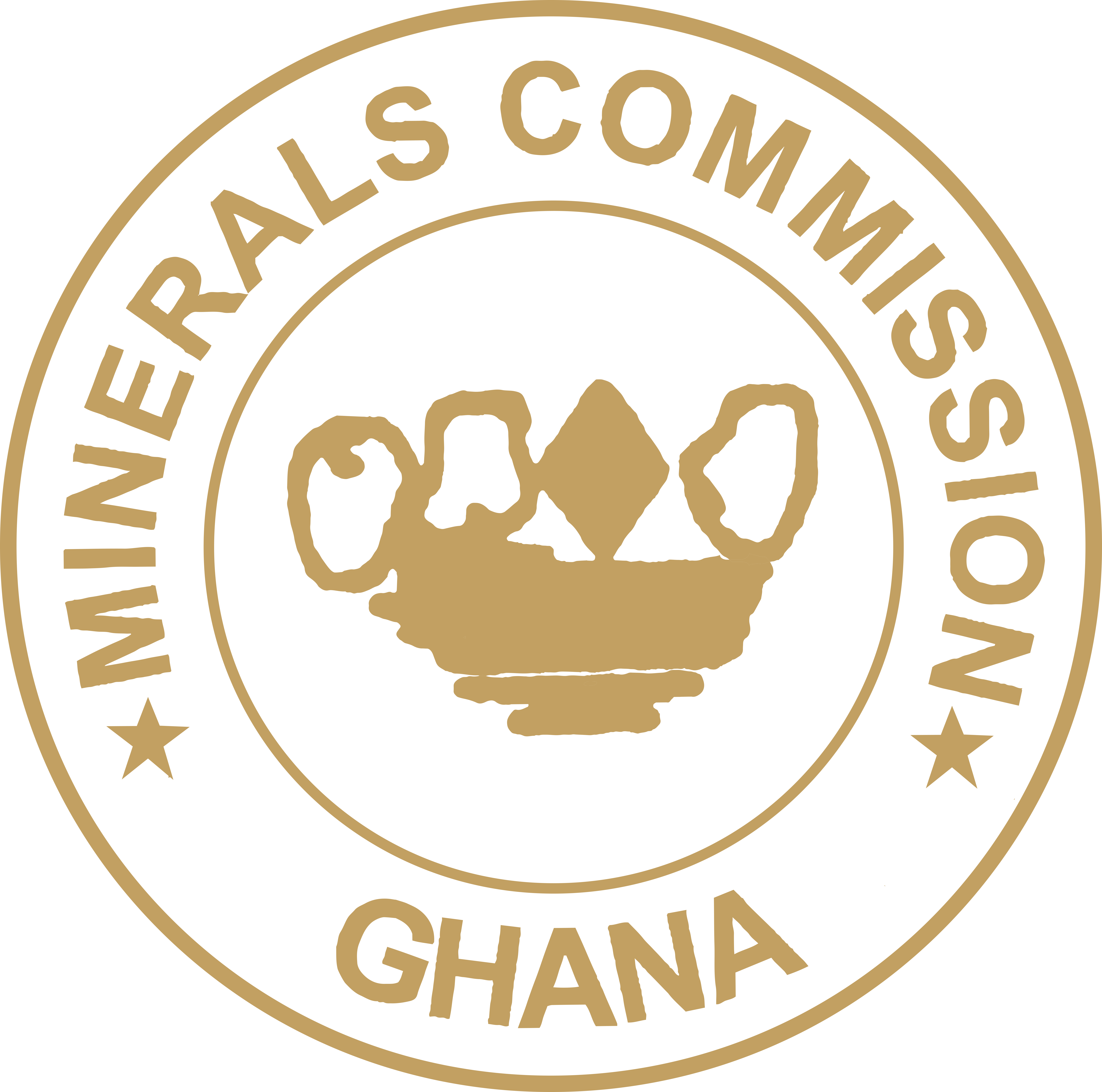Strengthening Partnership: Upper East Regional House of Chiefs meets Minerals Commission on Legal Reforms
Bolgatanga, Upper East Region, July 16, 2025 – In a significant step towards reshaping Ghana’s mining landscape, the Minerals Commission engaged the Upper East Regional House of Chiefs in Bolgatanga. The high-level consultative meeting focused on crucial proposed amendments to the Minerals and Mining Act, 2006 (Act 703) and the 2014 Mining Policy.
Chaired by Chiana Pio Ditundini Adiali Ayagtam III, Paramount Chief of Chiana Traditional Area and President of the Upper East Regional House of Chiefs, the dialogue underscored the vital role of traditional authorities. He amplified the eminent role of Chiefs, stating “our sacred duty as traditional leaders demands stewardship and recognition when it comes to land acquisition”. The Chiana Pio highlighted the region’s rich mineral endowment, which include manganese, iron and gold. He welcomed the government’s efforts, including the establishment of the Gold Board to regulate the purchasing and sale of gold in the country. He raised strong concerns about environmental threats and dangers of unregulated small-scale mining to both the environment and lives of community members. He further advocated for a more transparent land allocation process and expressed unease about mineral rights notices served on communities unaware of the full scope of activities. The Chiana Pio stressed the need for active support by the Chiefs to sanitize the mining sector, promote environmental stewardship, and improve governance. On behalf of the Regional House of Chiefs, he pledged total commitment to supporting the government’s reset of the mining sector.
Prof. Jerry Samuel Yaw Kuma represented Hon. Emmanuel Armah-Kofi Buah, Minister for Lands and Natural Resources at the function. Delivering the keynote address, he intimated the urgent need for the review of the mining laws, policies and accompanying regulations after two decades of implementation considering the revolution and innovations happening in the mining sector across the globe. He emphasized Ghana’s mineral wealth (gold, manganese, bauxite, lithium, iron etc) acknowledging that Ghana is now the leading producer of gold in Africa.
Prof. Kuma spotlighted the government’s initiative to establish Cooperative Mining – a shift from Community Mining to a structured and integrated community led mining to boost local participation and direct economic benefits to Ghanaians. He remarked that the government is conscious of environmental degradation posed by illegal mining and committed to sustainability, with enhanced regulations to protect water bodies and promote responsible mining practices.
Prof. Kuma noted, Chiefs are key partners, recognizing their constitutional mandate and institutional knowledge as traditional leaders in land stewardship and licensing. Also, he stated that several stakeholder consultations had been held with the Chamber of Mines, National Development Planning Commission, Small-Scale Miners Association, and the Parliamentary Select Committee on Lands and Natural Resources among others. Mr. Benjamin Aryee, Chairman of the Mining Policy Review Committee and former Minerals Commission CEO, outlined critical interventions and proposals including phasing out mercury use in small-scale mining, referencing the Minamata Convention, which Ghana is a signatory, and alternatives like Gold Katcha, a mercury free mining equipment which enhances gold recovery rate by about 90%. He also mentioned the need to decentralize the operations of the Commission
through the establishment of regional and district offices and streamlining the licensing process. Mr. Aryee noted the benefits of local content and local participation in deepening Ghanaian ownership through share acquisition and listing of mining companies on the Ghana Stock Exchange. Again, he emphasized the adoption of Environmental, Social, and Governance (ESG) standards, climate change mitigation, and occupational health and safety into the new policy.
Mr. Josef Iroko, Manager, Legal of the Commission, detailed specific proposed amendments:
- Parliamentary Ratification: mining leases require parliamentary approval within 60 days.
- Transparency Boost: strengthening Extractive Industries Transparency Initiative (EITI) compliance and Rights to Information access.
- Stricter Community Pacts: mandatory 1% gross revenue for Community Development Agreements (CDAs) to be negotiated and signed off within 6 months, backed by Development Committees and sanctions for non-compliance.
- Reclamation Security: compulsory posting of reclamation bonds to tackle environmental degradation and pollution.
- Review of Stability and Development Agreements: reducing Stability Agreement durations from 15 years max to 5 years, abolishing Development Agreements.
- Gender & Inclusion: mainstreaming gender and addressing needs of Persons with Disabilities (PWD).
The Chiefs actively engaged in the discussions and proposed recommendations for the attention of Review Committee. Below is a summary of the concerns raised:
- Royalty Distribution: Direct consultation with Regional Houses of Chiefs on royalty disbursement, including a percentage allocation to them. They also suggested channeling royalties into tangible CSR projects like schools, hospitals etc.
- Enforcement & Impact: Demand enforcement of reclamation, addressing externalities (e.g., river pollution, forest destruction), and requiring mining companies to deliver significant community projects within 3 years of signing CDAs.
- Local Jobs & Inclusion: Mandatory allocation of at least 20% non-technical jobs for local communities and include Queen mothers in mining decision-making.
- Combating Illegality in Mining: Government to implement sustainable measures against illegal mining, stop mercury use in small-scale operations, prohibit child labour, and clamping down on “fronting” for foreigners in small-scale mining reserved for Ghanaians.
- Formalizing Chief’s Role: Amend the law to explicitly include “Stool or Skin” in narratives and introduce a mandatory Chief’s consent form prior to granting mineral rights.
Concluding the session, Prof. Kuma called on the Chiefs to formally submit detailed feedback within two weeks. He emphasized that Ghana’s ambition to be a leader in responsible mineral resource management hinges on these collaborative reforms, designed to maximize the sector’s contribution to national development.
This meeting marks a crucial step in aligning Ghana’s mining regulations with contemporary challenges, environmental imperatives, and the rightful role of its traditional custodians. The outcome of this review process promises a more sustainable, equitable, and prosperous future for Ghana’s mining sector and its communities.
